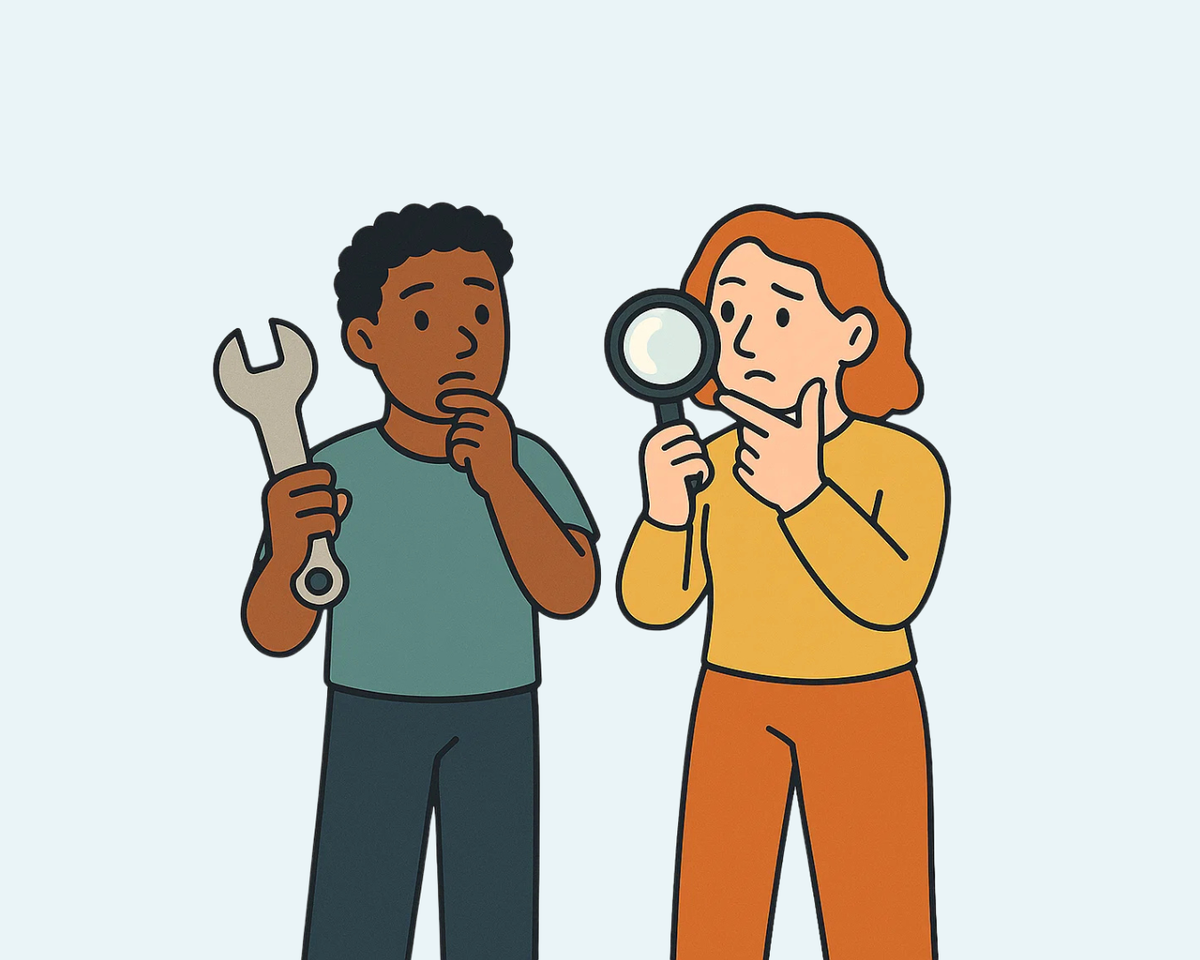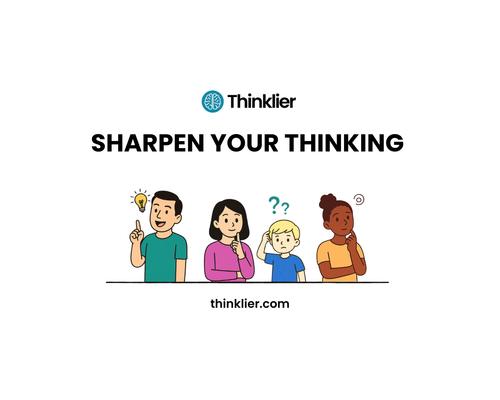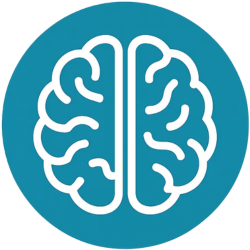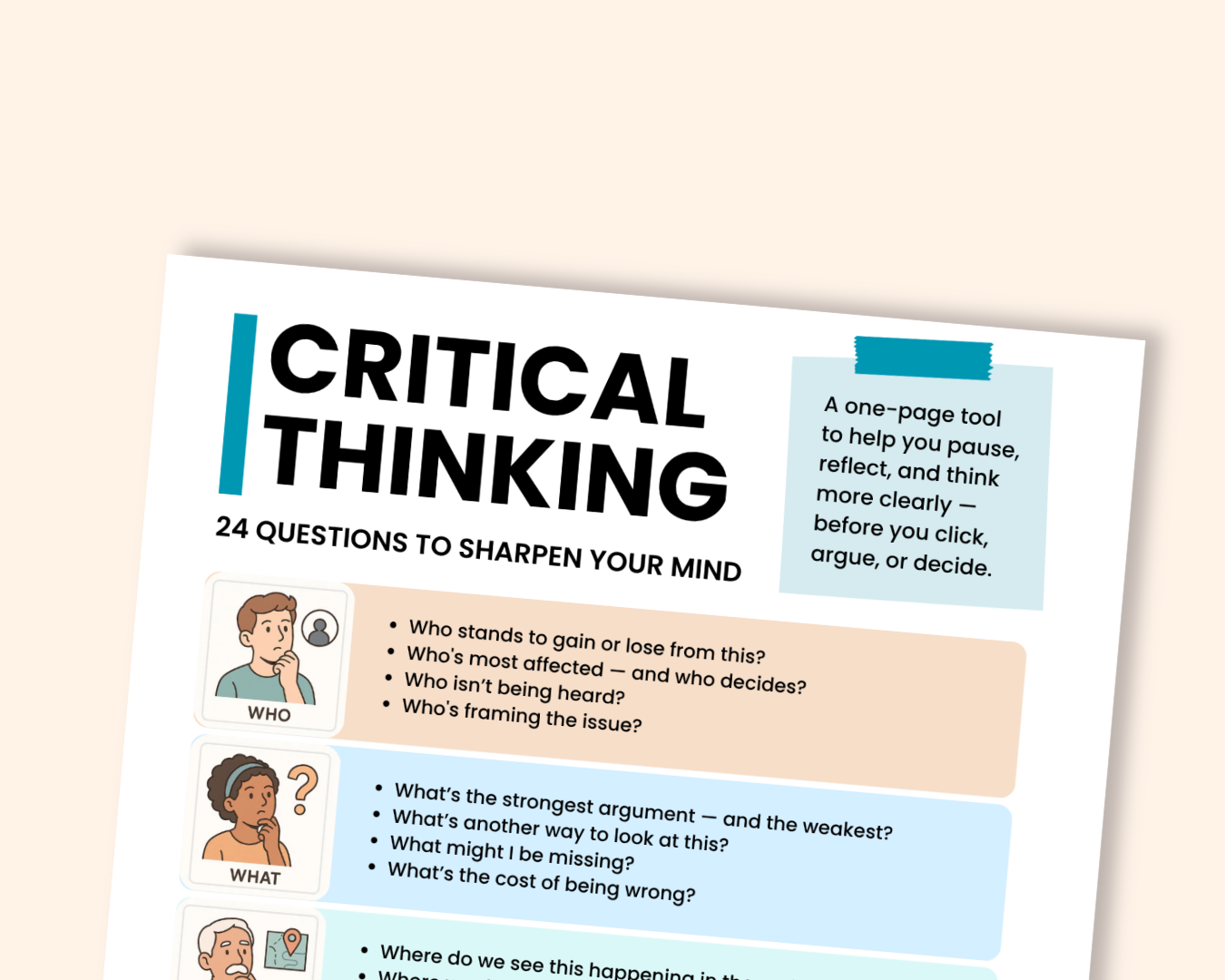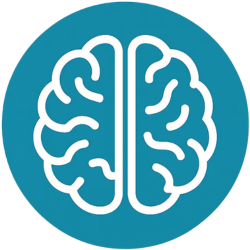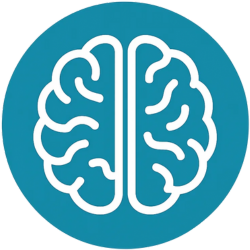Imagine this: A friend sends you an alarming headline. It's going viral. Your heart rate rises. You feel the tug — to forward it, to react, to take a side. But something nags at you. You pause. And in that pause, you ask:
“Who’s behind this?”
“What’s actually being claimed?”
“Where does this idea come from?”
That moment — brief as it is — is critical thinking in action.
We often imagine critical thinking as something formal or academic, the domain of clever debaters and sharp-tongued commentators. But at its core, it’s much simpler. It’s the ability to slow down, stay curious, and ask the kinds of questions that stop you from being swept along by emotion, assumption, or groupthink.
And it’s not a tool for “dull” minds, either. In fact, it’s often the brightest people — the quick thinkers, the articulate arguers — who fall for flawed ideas. Why? Because intelligence without reflection can simply mean being better at rationalising bad beliefs. Smarter minds are often faster at building elaborate justifications for things they want to believe.
That’s why we made this:
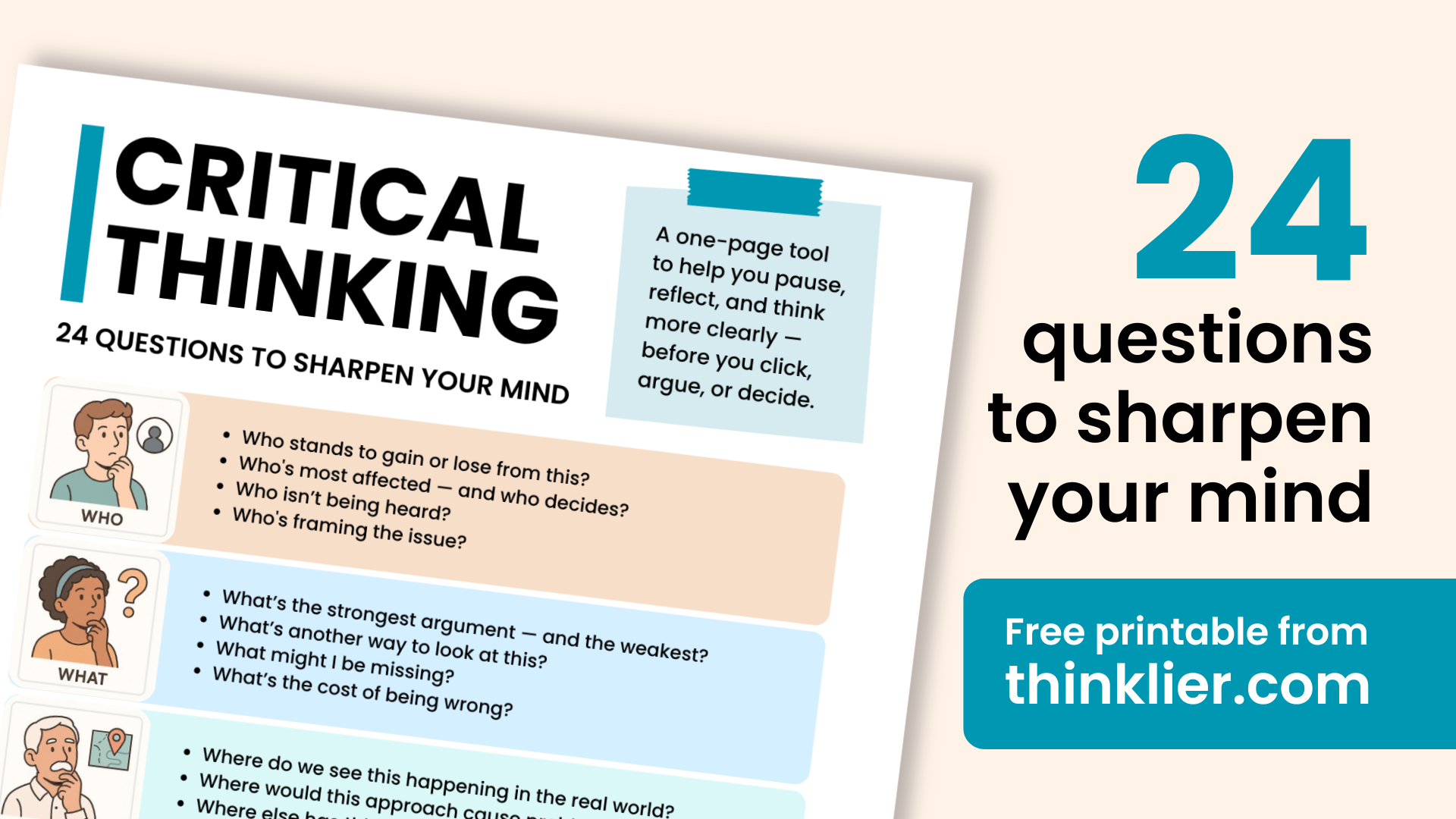
The Thinklier cheatsheet for clearer thinking
This isn’t a gimmick. It’s a set of questions you can carry in your mental pocket.
When you read a claim, face a decision, or feel pressure to form a strong opinion — try running it through these six lenses:
- Who is affected, included, or excluded?
- What is actually being said, and what’s missing?
- Where does this idea lead — or fail?
- When did this become accepted, and why now?
- Why does it feel right, and who benefits if you believe it?
- How do we know it’s true, and how could it be done better?
Each question is like a handhold that helps you climb out of the slippery pit of snap judgment and into a place of clarity.
Why questions matter more than answers
We live in a culture that prizes quick takes and hot opinions. But speed isn't wisdom. If anything, it’s the enemy of it.
Asking good questions doesn’t just protect us from misinformation — it cultivates intellectual humility. It slows the rush to certainty. It allows space for complexity, contradiction, and nuance — things the internet rarely rewards.
And perhaps most importantly, it makes us better people to talk to. Curious, reflective people — not just opinion machines.
Use it before you scroll. Before you share. Before you judge.
The next time you’re about to post, argue, or double down — pause. Pick one question from the cheatsheet. Let it lead you somewhere deeper than your first reaction.
Clear thinking doesn’t mean never being wrong. It means being willing to question even your most comfortable ideas — not because you lack intelligence, but because you value truth more than ego.
Further reading
Clear Thinking: Turning Ordinary Moments into Extraordinary Results
by Shane Parrish
Straightforward and actionable. Parrish breaks down mental “forces” that cloud thinking — and how to escape them.
The Scout Mindset: Why Some People See Things Clearly and Others Don’t
by Julia Galef
How to replace motivated reasoning with curiosity, humility, and intellectual honesty — one of the clearest books on how to think well.
The Art of Thinking Clearly
by Rolf Dobelli
A concise guide to the most common thinking errors — and how to spot them before they sabotage your reasoning.
Enjoyed this? Go deeper with our free Thinking Toolkit
A 10-part course to help you think more clearly, spot bad arguments, and build habits for sharper reasoning.
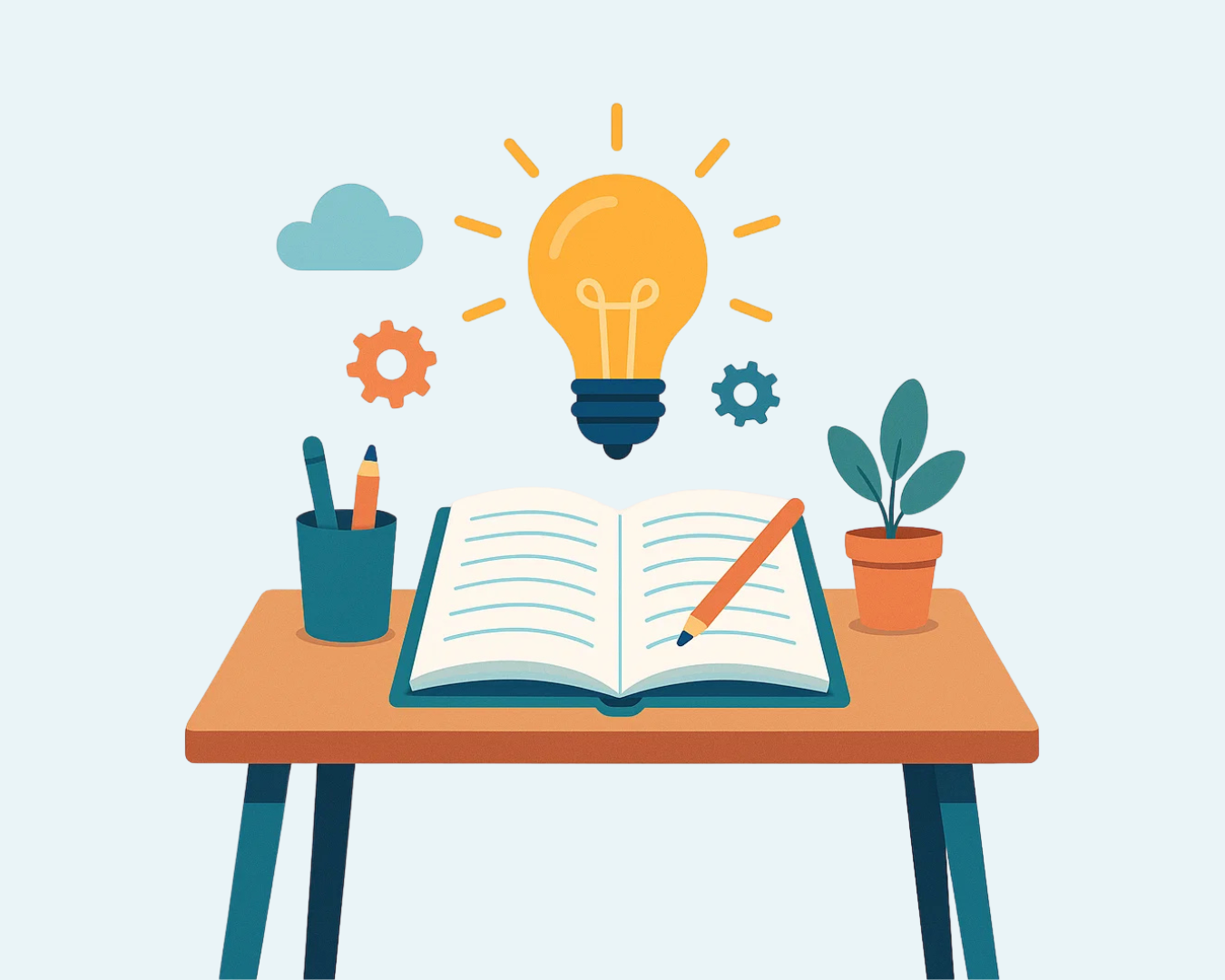
You might also like...
